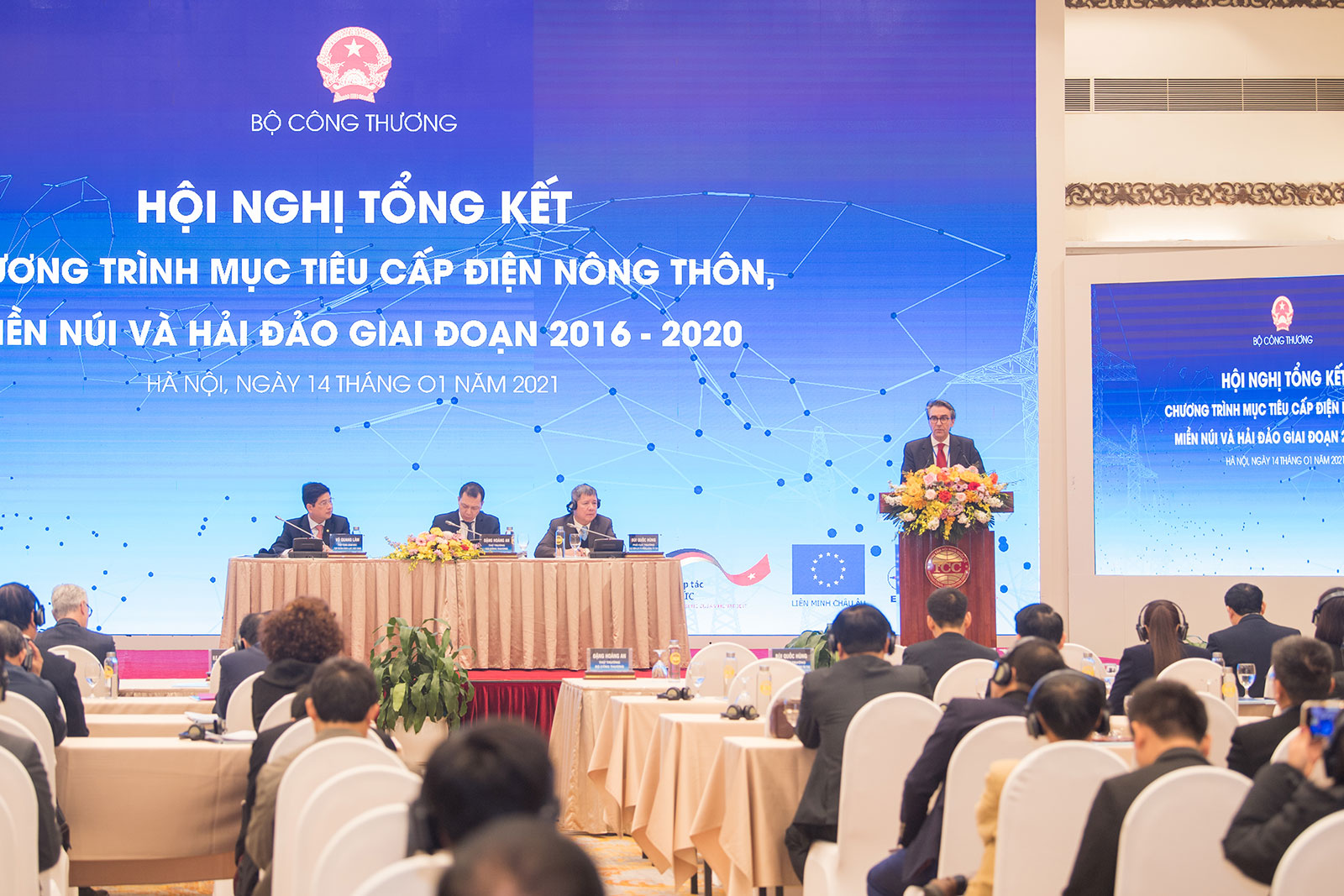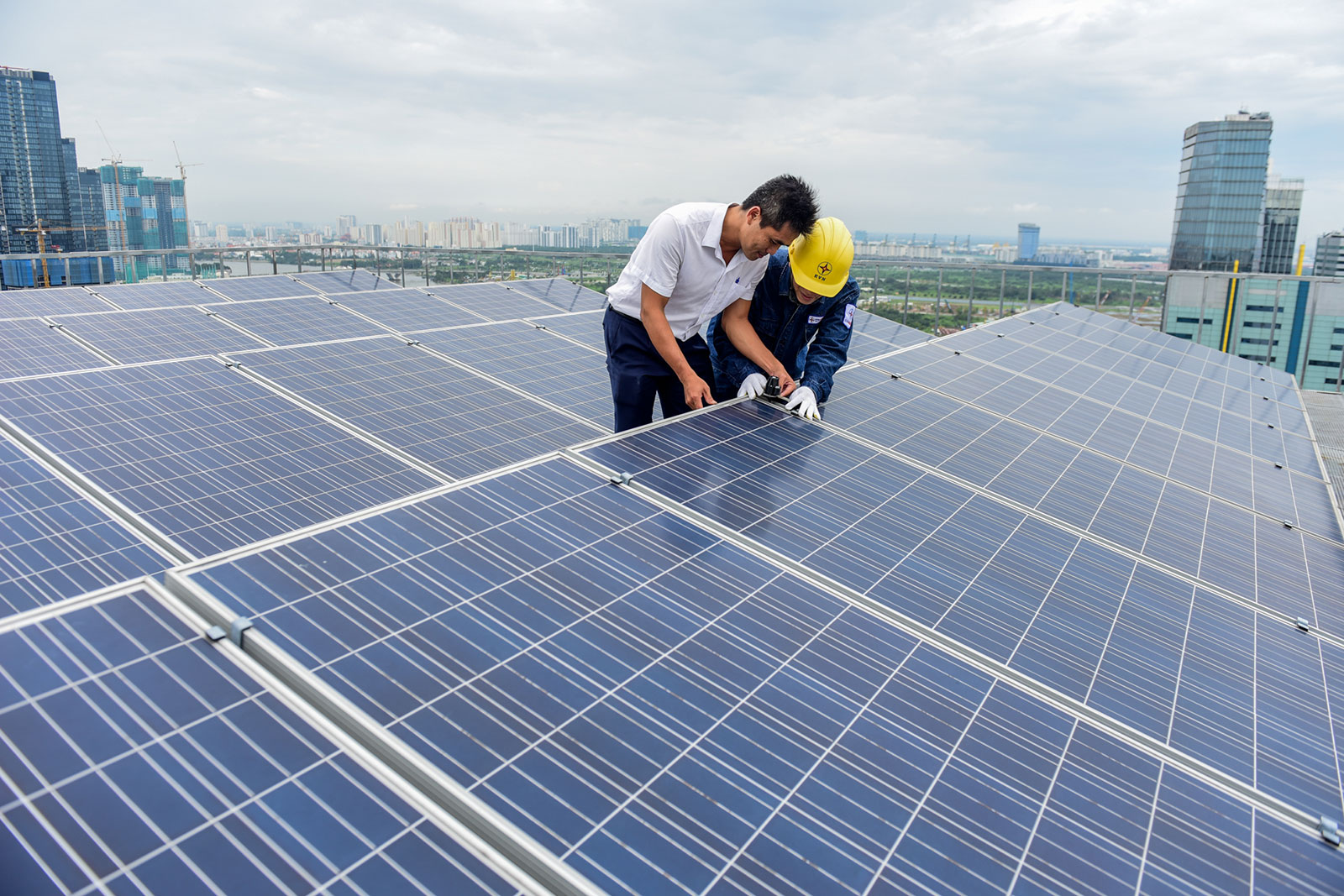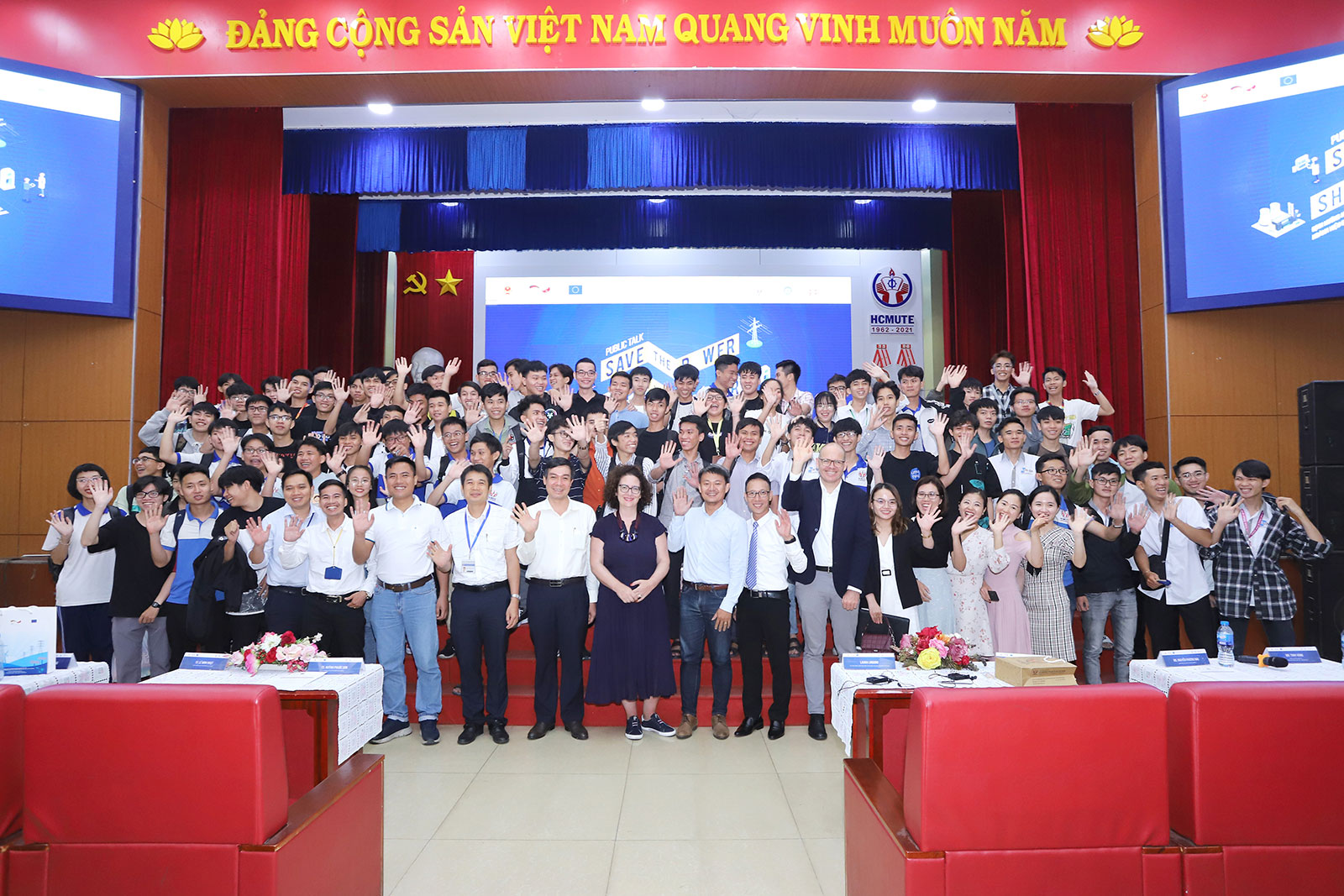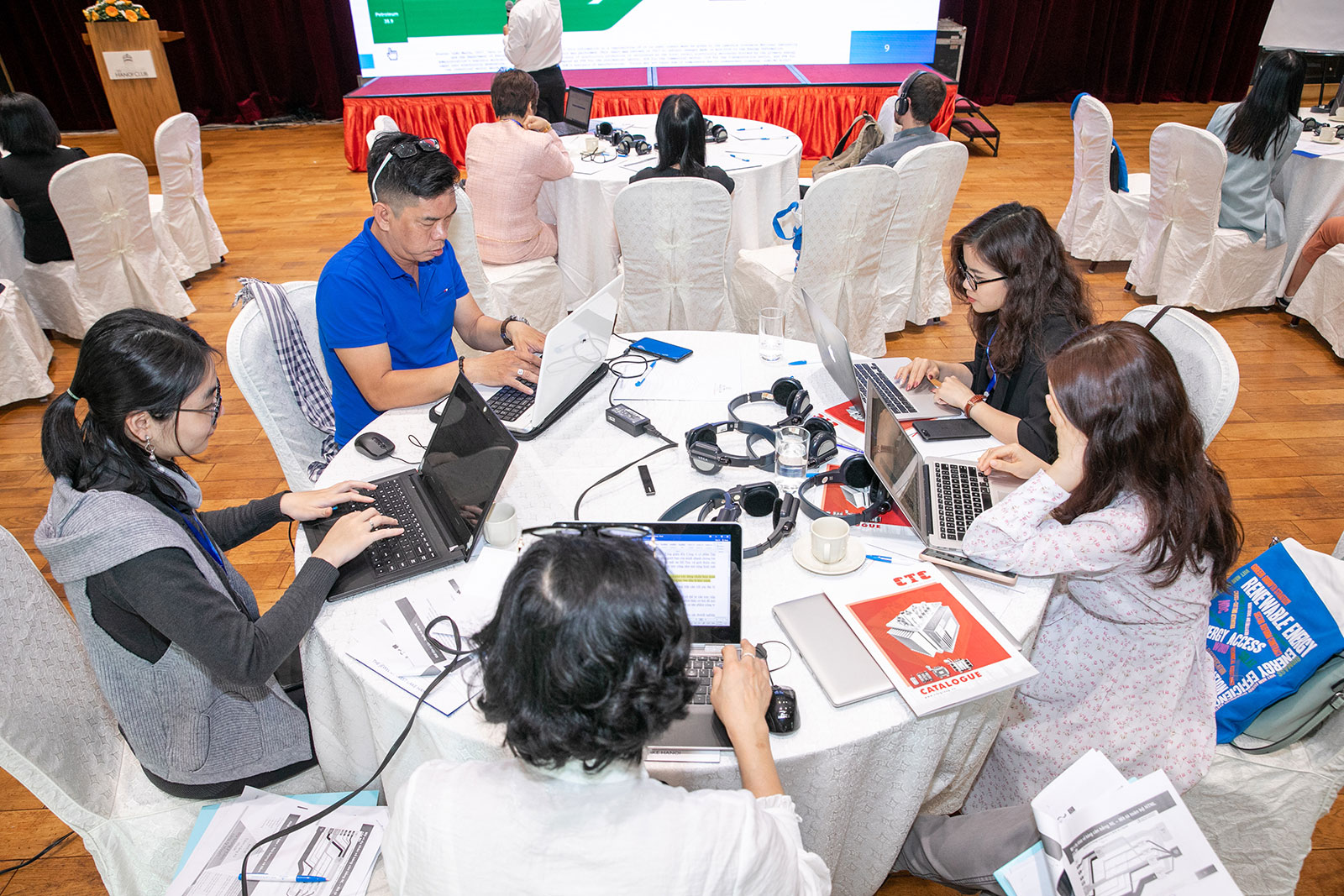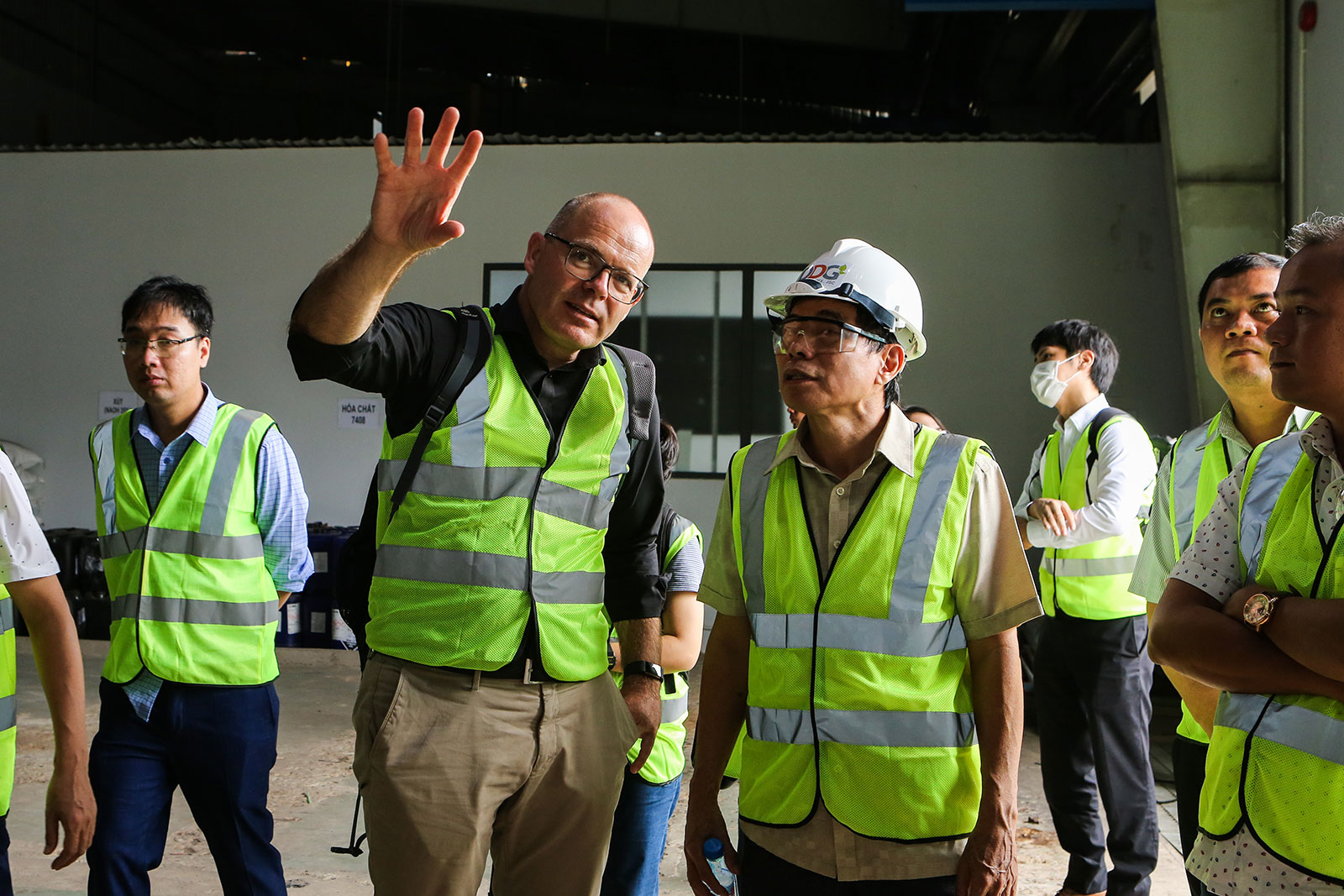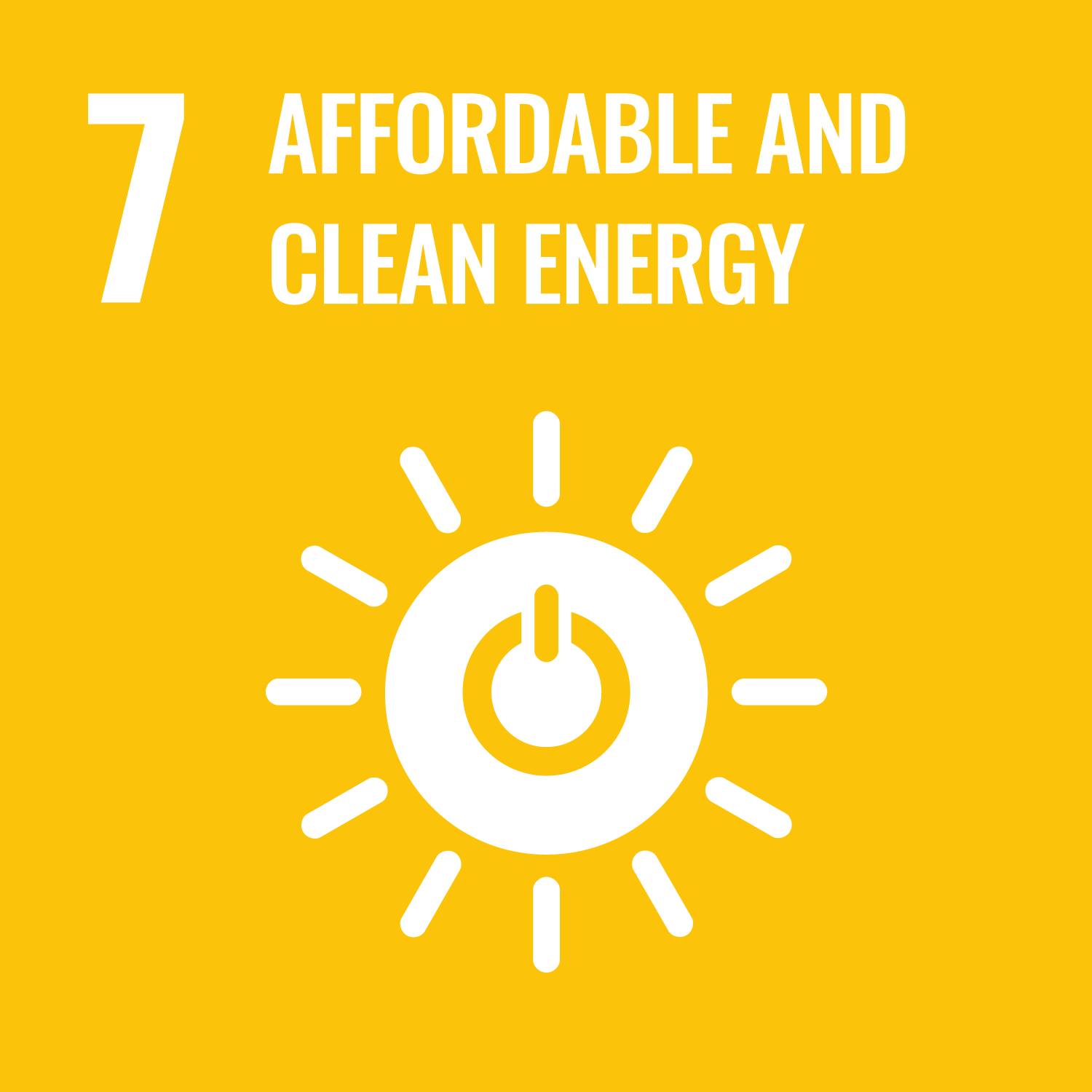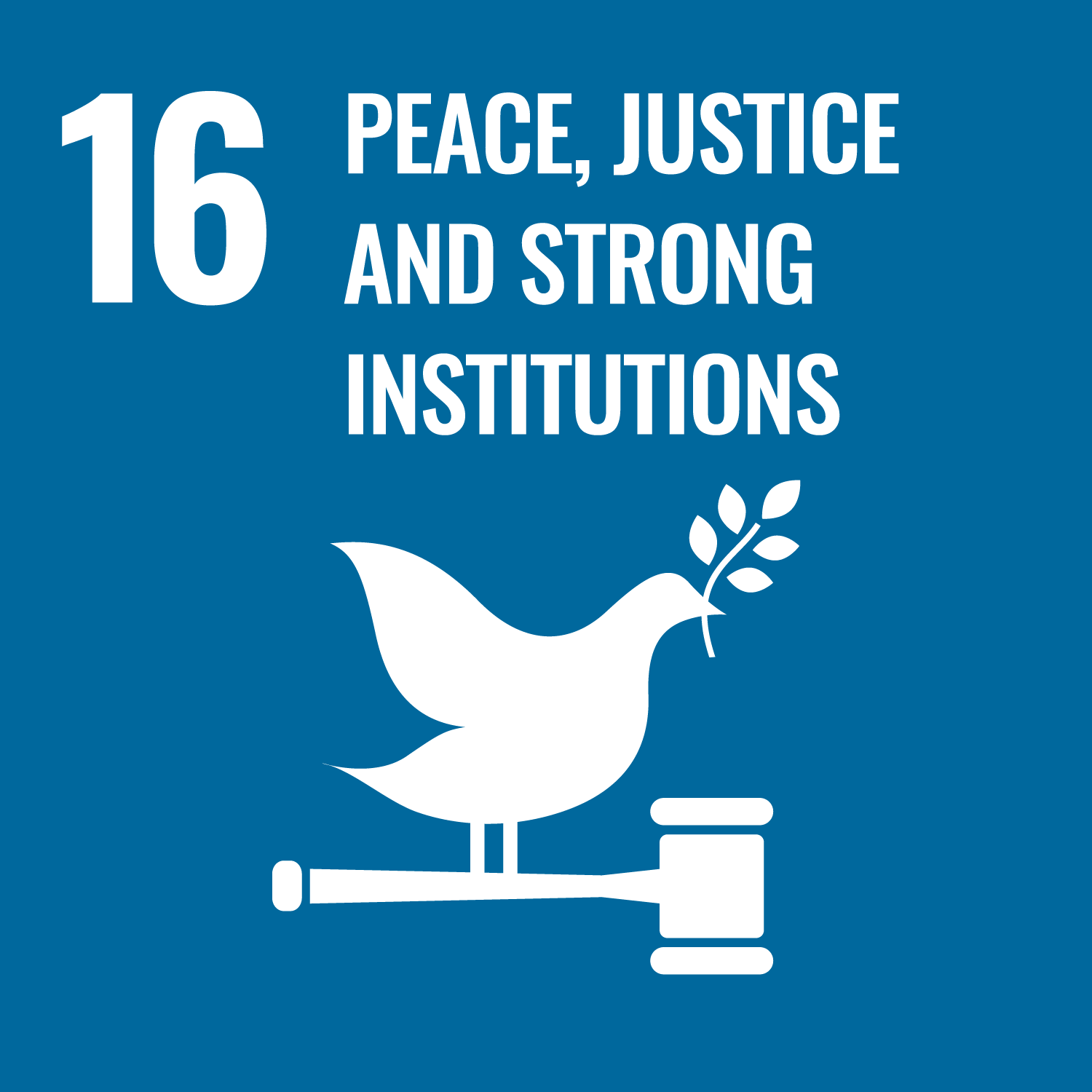Renewable Energy and Energy Eficiency (Vietnam)

Objectives
To further develop legal and regulatory preconditions and related capacities for investment in renewable energy and energy efficiency as well as to further strengthen related capacities for implementation.
Description
The Renewable Energy and Energy Efficiency (4E) Phase II project has been commissioned by the German Federal Ministry for economic development BMZ and EU to implement the EVEF Project (Technical Assistance for the Implementation of the EU-Viet Nam Energy Facility). MOIT is the political partner, and the Electricity and Renewable Energy Authority is the national implementing agency who together with GIZ carries out this project.
The aim of the Project is to support the Government of Viet Nam in further shaping the legal and regulatory framework to govern large-scale renewable energy installations and energy efficiency in industry as well as in further strengthening related capacities for implementation.
The four main fields of cooperation (Action Areas) aim at:
- Strengthening capacities of the Electricity and Renewable Energy Authority under MOIT as well as of Vietnamese key energy companies to accelerate the deployment of new RE in Vietnam
- Strengthening capacities of the Energy Efficiency and Sustainable Development department of MOIT, industrial consumers, Energy Service Providers, and Energy Service Companies (ESCOs) to enhance EE in Vietnam
- Awareness raising on Renewable Energy and Energy Efficiency
- Technical Assistance for the Implementation of the EU-Vietnam Energy Facility
Approach/Field of intervention
Renewable Energy:
- Legal and Regulatory framework:
- Trainings on public sector management of RE development
- Support MOIT in setting up a monitoring system for RE
- Exposure of MOIT to international good practices on supervision of large-scale RE installations
- Study tours and conferences for sharing international experiences on public sector management of RE development
- Assistance MOIT in the review, adjustment and further development of legal and regulatory RE framework in relation with the design and monitoring of utility-scale RE installations (e.g. RE portfolio standards, net- metering, etc.)
- Capacity Development
- Establish for Vietnamese key energy Companies an individual support Programme including specific studies, trainings, and targeted expertise in order to facilitate their involvement in large-scale RE
- Facilitate international peer to peer exchange at the managerial, financial, and technical level for Vietnamese energy Companies investing in large-scale RE
- Provide state-of-the-art technical and conceptual advice on sustainability issues of RE power plant design and Operation
- Technical Cooperation
- Assist in the design of a pilot awareness campaign
- Support MOIT in communicating national success stories on RE
Energy Efficiency
- Legal and regulatory framework
- Support the development of the legislative framework for the certification of ESPs
- Provide access to international expertise on EE policies, related impacts, and enforcement mechanisms
- Support policy impact assessments of potential EE support mechanisms in Vietnam
- Further develop the EE database to be integrated into the envisaged Energy Data Centre
- Training(s) for MOIT/DolTs on EE data analysis
- Elaborate Energy Performance Indicators (EPI) in industrial sectors based on energy audit data
- Establish a sectoral benchmark mechanism based on EPI for designated energy consumers
- Capacity development
- Capacity development of energy managers (e.g. through EE networks, training on specific sectoral
- topics, preparation of technical information material)
- Implement pilot scheme for capacity development based on EE networks, facilitate their scaling-up including training and additional support
- Provide capacity development for ESPs and ESCOs, through e.g.:
- technical trainings on calculating economics of EE measures
- study on potential technologies to be considered by ESCOs
- pilot Installation of comprehensive metering approach and provide training on data analysis to ESPs
- international Conferences and study tours
- Support pilot projects with regard to circular economy (e.g. develop a respective concept for an industrial park)
- Technology cooperation
- Design and pilot the implementation of a national EE award
- Compile, publish and disseminate a compendium of innovative EE measures implemented in the industry in Vietnam
- Develop a marketing campaign targeting corporate decision-makers to enhance EE in their companies
EU-Co Financing (EVEF)
| Component 1a –
TA for MOIT
|
– Development of legislation and regulation, draft policies / plans, etc.
– Capacity Development – Selected activities in achievement of the Performance Indicators – Development of reliable energy information systems / energy statistics
|
| Component 1b –
TA for non-MOIT stakeholders
|
– Action plans / studies for improvement of the investment climate
– Capacity development to public, private & research/education institutions – Support to increase technology cooperation and transfer
|
| Component 2 –
VEPG-Secretariat
|
– Logistical support to the preparation and implementation of meetings
– Conceptual / technical support services to the VEPG (e.g. drafting of “VEPG documents”, technical background information and/or studies) – Monitoring of the progress of the VEPG, based on discussions with the respective Co-Chairs of the TWGs and the VEPG-SC
|
| Component 3 –
EU Sector Reform Contract Monitoring
|
– Monitoring of the progress of the Rural Electrification Programme (Annual Review of the GOV’s reporting to the EUD; random checks)
– Monitoring of Enhanced Governance in the Energy Sector (e.g. development of a legal and technical framework for energy data collection; implementation of the REDS
|
| Component 4 – Cross-cutting activities
|
– Results-Monitoring for Components 1-3
– Communication and Visibility Activities for Components 1-3
|
Targeted beneficiaries
- Direct beneficiaries include policy makers and government experts, staff of key energy companies, energy managers of industrial companies as well as other key stakeholders relevant (now and in the future) for the development of Renewable Energy and Energy Efficiency in Vietnam.
- Indirect beneficiaries of the project are all users of grid-connected electricity, (including private households, industries, and public entities), which – in the long-term – will benefit from an increased energy security and cost efficiency of the power sector.
Highlight activities /Achievements
- Support MOIT in developing RE support mechanism (for wind, solar, waste to energy and biomass)
- Development of investment guidelines for RE projects
- Support to issuing technical standards for wind and solar
- Assessment of RE integration capability to the national grids; solutions to absorb as much as possible the RE sources.
- Potential assessment of RE sources
- Hydrogen road map for VN (starting soon)
- BESS and energy storage (starting soon)
- RE Law development
- Revision of the Electricity Law (for grid investment and planning)
- Website of Viet Nam Energy Efficiency Community http://veecom.vn/ established to provide reliable information on policies, technologies, equipment, and services for energy efficiency.
- Website of Viet Nam Energy Partnership Group https://vepg.vn/ established
Publications/Knowledge Products
Video
Success stories
The Solar PV regulatory framework has progressed significantly with the support of the Project] to the Ministry of Industry and Trade (MoIT) for the development of the draft 2nd Solar PV FIT regulation for ground-mounted solar, as well as to the development, implementation, and monitoring of the MOIT Rooftop Solar Promotion Program, paired with a strong communication campaign of Electricity Vietnam (EVN). Furthermore, the Project provided inputs for the Resolution 55-NQ/TW on the Orientation of the Viet Nam’s National Energy Development Strategy to 2030 and outlook to 2045 issued by the Politburo. GIZ will continue to support the Government of Viet Nam in the promotion of renewable energy and the development and implementation of a long term energy transition strategy.
COUNTRY
Viet Nam
DURATION
January 2018 - December 2021
